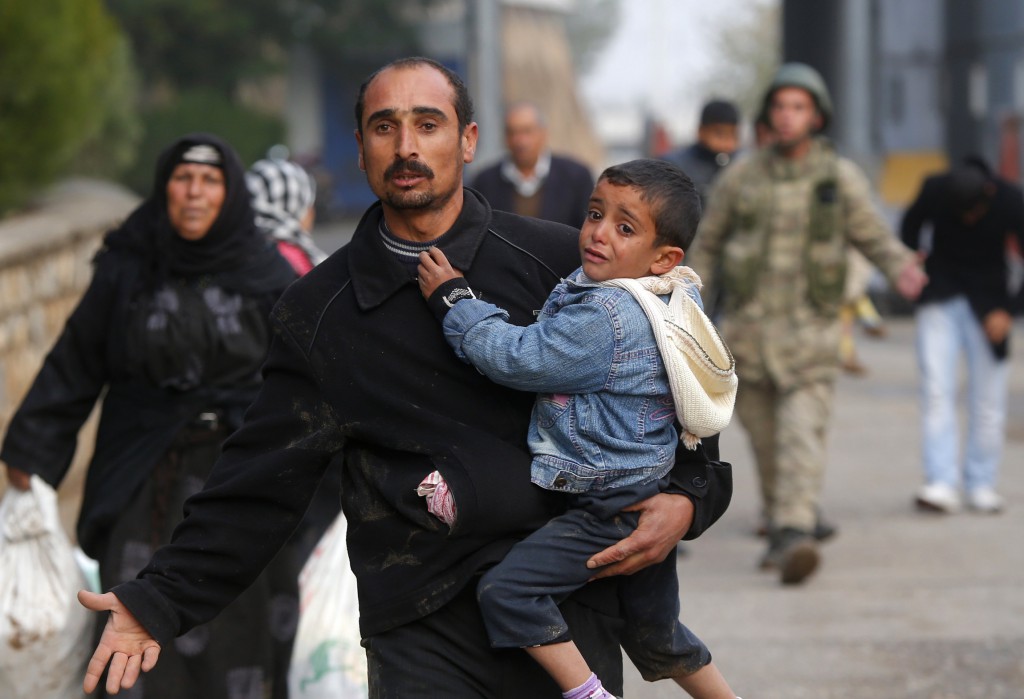Beirut, Benghazi – The regression of ISIS’s control in Syria, Iraq, and Libya has led to the return of many people who left their homes. ISIS’s expansion over many regions in those three countries pushed the displacement of thousands of their residents and imposed a demographic change among ethnicities and sects, it has also nationalized many extremists and their families who flowed from different regions around the world.
The demographic rebalance in Syria has begun since ISIS’s regression launched in Ayn al-Arab/ Kobanî on the Syrian-Turkish borders after its defeat against Kurdish militias – supported by the International Coalition.
A Kurdish source told Asharq Al-Awsat that the terrorist organization moved many of its supporters and militants and their families to regions resided by a Kurdish, Assyrian, Syriac, and Sunni Arabs. The same process happened in Iraq, where ISIS lost many areas. The Libyan officials’ neglect for the demographic problem helped ISIS on causing a serious displacement problem due to the displacement of hundreds thousands people.
Sunni Arabs
In spite that ISIS alleges it has fought for the sake of an Islamic “Caliphate” and that it represents “Ahl sunna wa Al jama3a”, the majority of its victims are from the Sunni Muslims. The organization worked on displacing Sunni people from many areas like Der ez-Zor, where it exterminated Al-Shaitat tribe, which refused to support it.
Others…
After ISIS’s control over Raqqa in January 2014, the demographic balance in the city comprising more than 300,000 people from different religions and ethnicities was destabilized; the organization chased all people who opposed it and killed the activists who disclosed its crimes. ISIS also committed horrible crimes against Ismailis in addition to many Christians and Kurds.
Mani Assyrians and Syriacs have been displaced from regions in Hasaka after ISIS pushed them to choose between tribute or leaving. Then, the terrorist organization arrested 200 Christians from the region, which forced those latter to compose a local military force that cooperated with Kurds and kicked out ISIS later from Tal Tamr’s village in Hasaka.
The organization’s attacks over these cities and its arrests and siege of many families urged displacement of the rest toward Hassaka and Al-Qamishli. It is worth mentioning that Christians represented 5% of the total population in Syria; however, many of them have left Syria since the outbreak of the uprising and the control of extremist organizations over many regions.
The Iraqi scene
Like in Syria, people from all groups and religions in Iraq were subject to ISIS’s violent practices; Kurds, Christians, and Êzidîs were targeted by the terrorist organization, but the Sunni Muslims were the main victims.
Most of regions controlled by ISIS in the West and North of Iraq were inhabited by Sunni Arabs; displaced people in Iraq reached 4.2 million Sunni and with the organizations battles in Mosul and Raqqa, many Sunni villages and cities were destroyed.
In fact, the Sunni people haven’t played any role in the emergence of extremist groups; a Sheikh from one of the Sunni tribes in Iraq said that ISIS was the “Tsunami” that hit Sunni people, who lost their homes, jobs, and families.
New Challenges
On another hand, despite that the majority of regions controlled by ISIS were Sunni ones, yet the forces seeking to recapture these cities are from Kurds and Shi’aas. Many of these forces have chosen to remain and settle in these regions after they liberated them and banned many families from returning to their homes.
ISIS and Libya
The problem in Libya has been slightly different. An official from the Libyan Parliament, Ibrahim Omeish told Asharq Al-Awsat that some parties have sought to nationalize around 500,000 people who entered the country as illegitimate migrants, because of the chaos spread by ISIS and other extremist groups.
In Libya, the beautiful city of Sirte has been destroyed and thousands left it since 2014; displacement also included other cities like Benghazi.
However, Libyan officials see that the displacement of Libyans will be a temporary circumstance and expected them to return after the situations calm in their cities. They add that they have no concerns from a demographic change because of ISIS.
